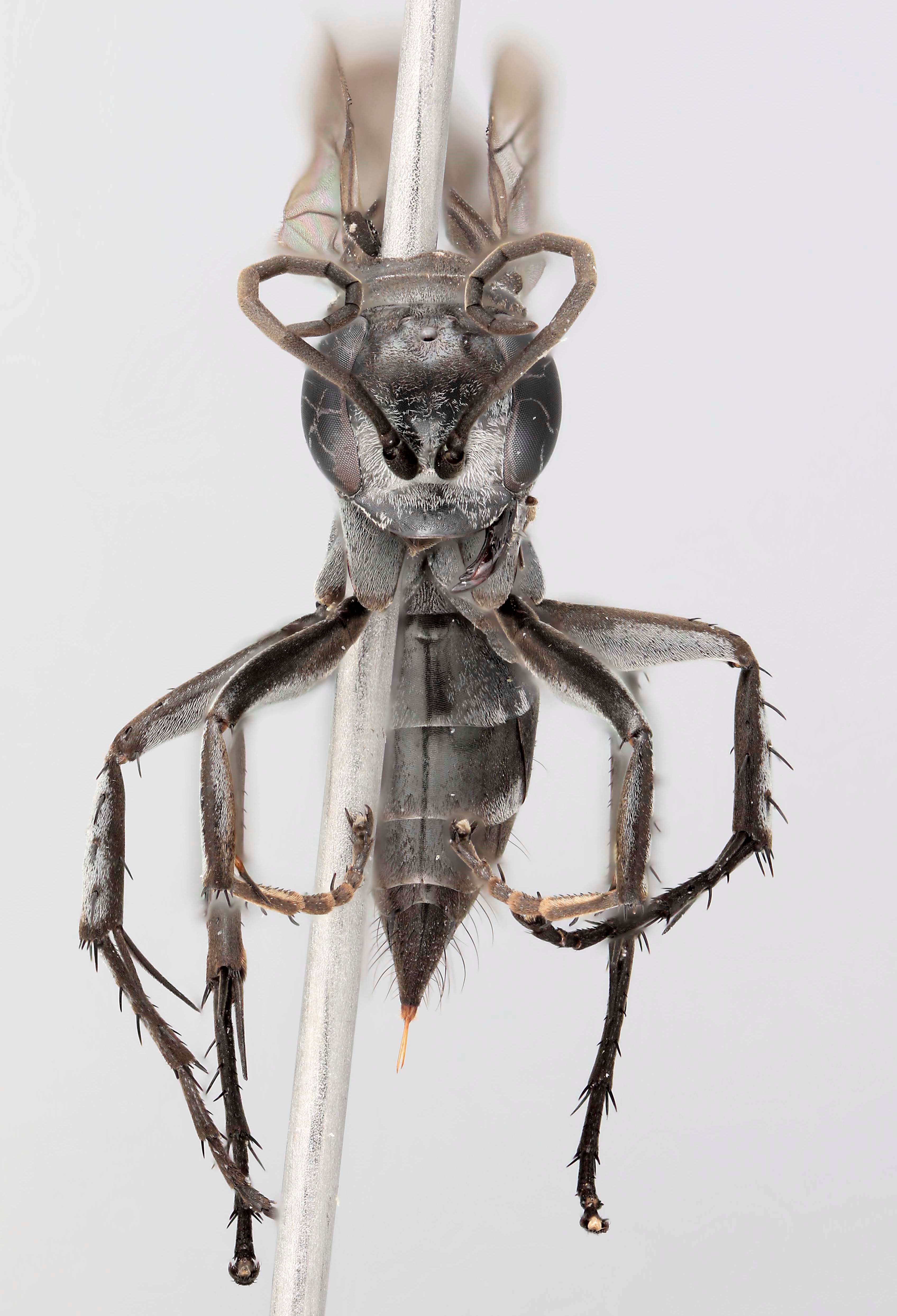Environomics = environmental genomics.
The Environomics Future Science Platform at CSIRO is using genomics, bioinformatics and nanotechnologies, to reinvent how we measure and monitor ecosystem health, change and threats, and find new resources in nature.
The challenge
Spider wasps are pollinators that parasitise spiders as hosts for their offspring, which develop in the paralysed but still-living body of the spider. How their venoms achieve this is a 40-million-year-old solution that we want to apply to modern problems.

But most Australian spider-wasp species are unknown to science. Gaining a better understanding of Australia's biodiversity to manage and benefit from it is a national challenge.
What we're doing
Among the 12 million specimens in the Australian National Insect Collection at CSIRO are 140 undescribed species of spider wasps. We are classifying these new species and selecting representatives from across the spider wasp family tree.
We're collecting live specimens of these representative species from across Australia, milking their venom and partnering with venom researchers at the University of Queensland to characterise the hundreds of compounds it contains.
Benefits for Australia
As well as acting against spiders, compounds in the venoms of spider wasps can act on receptors in the human nervous system. As a result of our work, we expect to find candidate pharmaceuticals to treat a range of human diseases, such as Alzheimer's and Parkinson's.
Spiders wasps are also important in ecosystems. Some species are obligate pollinators of native plants, meaning the plants are unable to produce seed without their spider wasp partner. Understanding more about our native biodiversity will benefit the way we manage and conserve our environment.
Get involved
Discovering new resources hidden in nature is continuing human endeavour. Our natural history collections are a vast storehouse of undescribed species and untapped potential. Talk to us about turning your ideas into products of the future.
Thanks to our partners at: The University of Queensland and Bioplatforms Australia.
Environomics = environmental genomics.
The Environomics Future Science Platform at CSIRO is using genomics, bioinformatics and nanotechnologies, to reinvent how we measure and monitor ecosystem health, change and threats, and find new resources in nature.
The challenge
Spider wasps are pollinators that parasitise spiders as hosts for their offspring, which develop in the paralysed but still-living body of the spider. How their venoms achieve this is a 40-million-year-old solution that we want to apply to modern problems.
But most Australian spider-wasp species are unknown to science. Gaining a better understanding of Australia's biodiversity to manage and benefit from it is a national challenge.
What we're doing
Among the 12 million specimens in the Australian National Insect Collection at CSIRO are 140 undescribed species of spider wasps. We are classifying these new species and selecting representatives from across the spider wasp family tree.
We're collecting live specimens of these representative species from across Australia, milking their venom and partnering with venom researchers at the University of Queensland to characterise the hundreds of compounds it contains.
Benefits for Australia
As well as acting against spiders, compounds in the venoms of spider wasps can act on receptors in the human nervous system. As a result of our work, we expect to find candidate pharmaceuticals to treat a range of human diseases, such as Alzheimer's and Parkinson's.
Spiders wasps are also important in ecosystems. Some species are obligate pollinators of native plants, meaning the plants are unable to produce seed without their spider wasp partner. Understanding more about our native biodiversity will benefit the way we manage and conserve our environment.
Get involved
Discovering new resources hidden in nature is continuing human endeavour. Our natural history collections are a vast storehouse of undescribed species and untapped potential. Talk to us about turning your ideas into products of the future.
Thanks to our partners at: The University of Queensland and Bioplatforms Australia.
